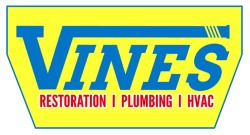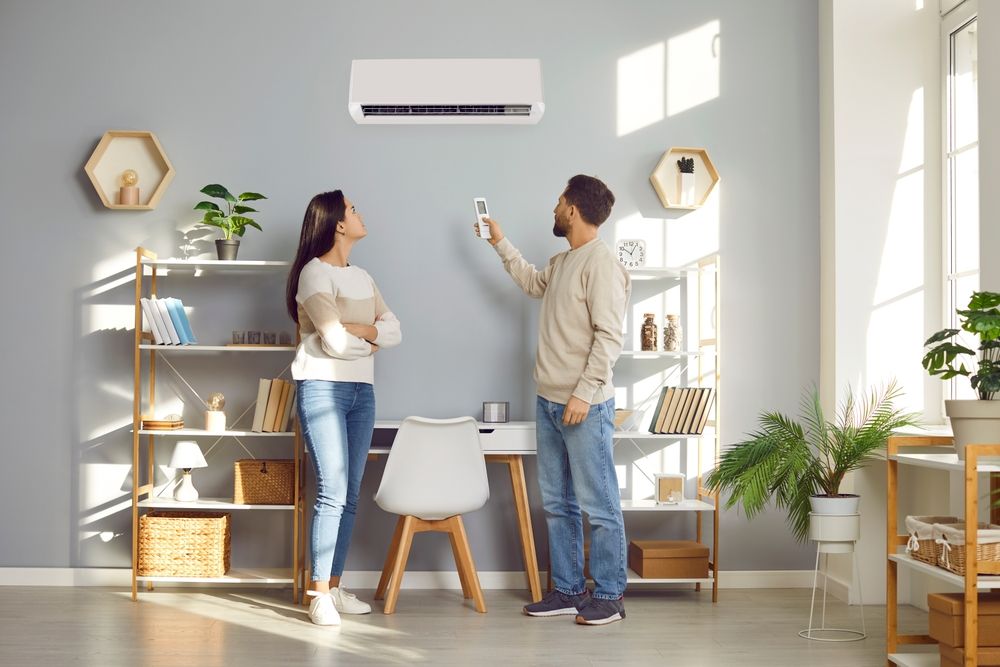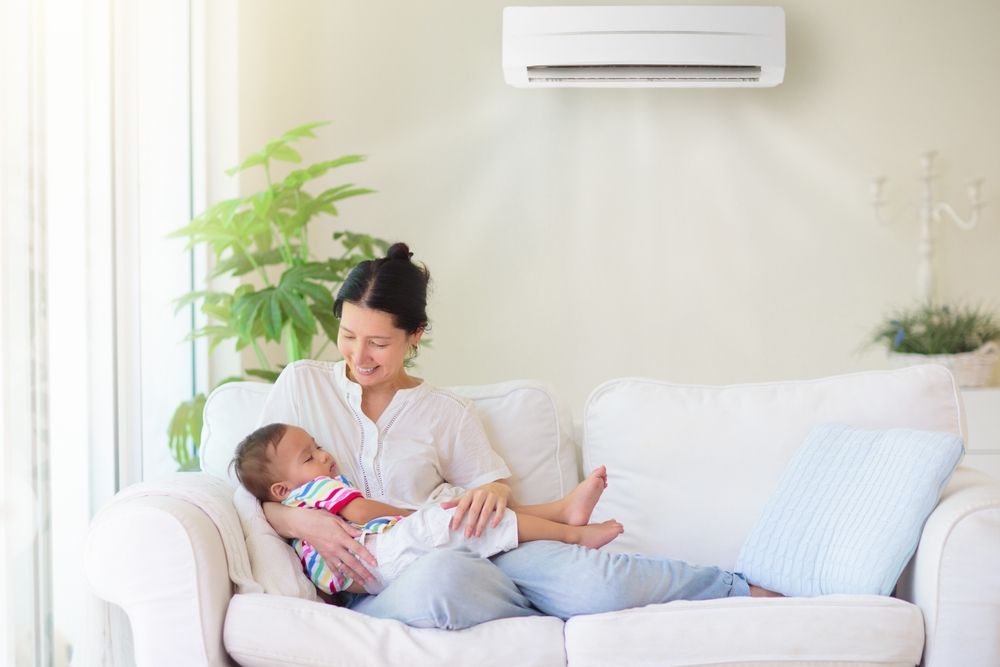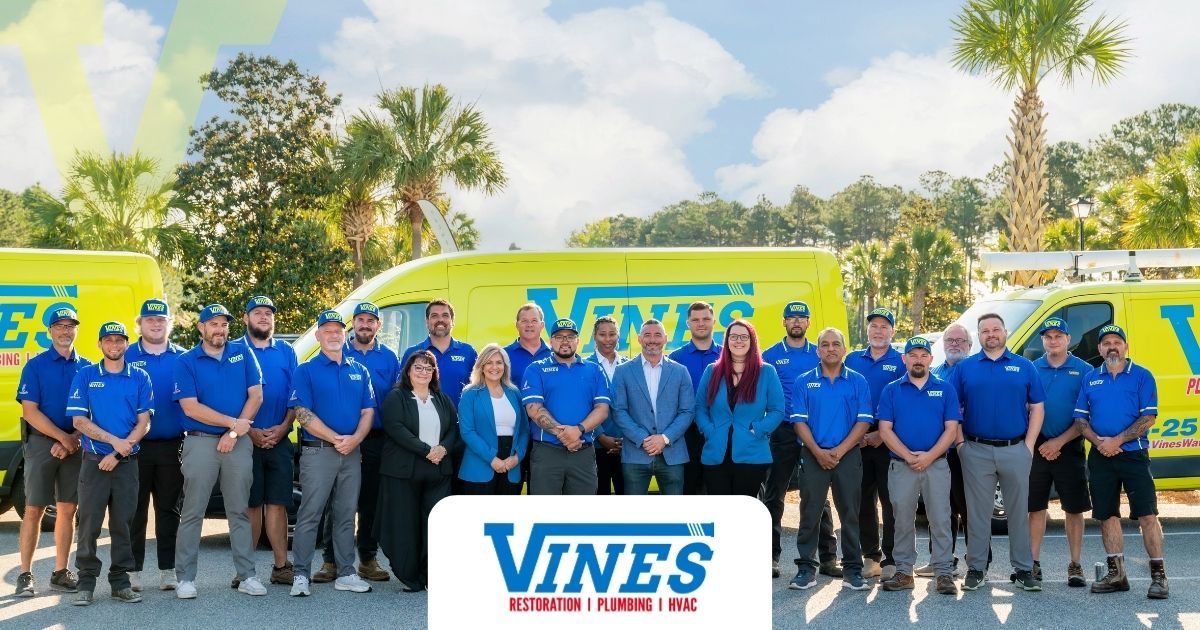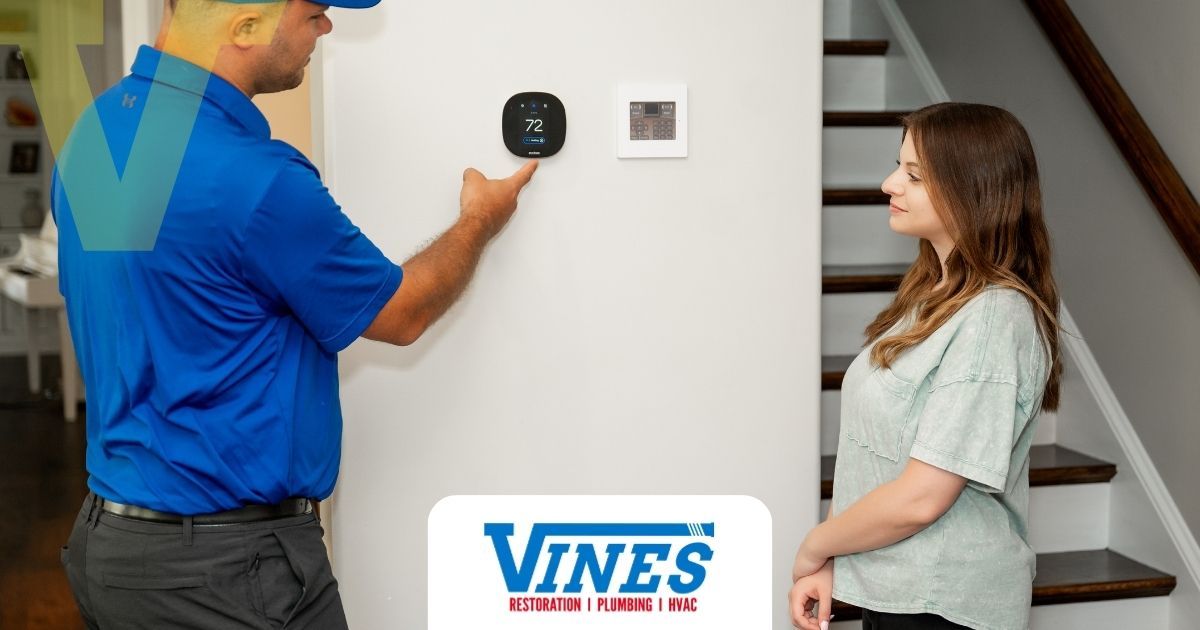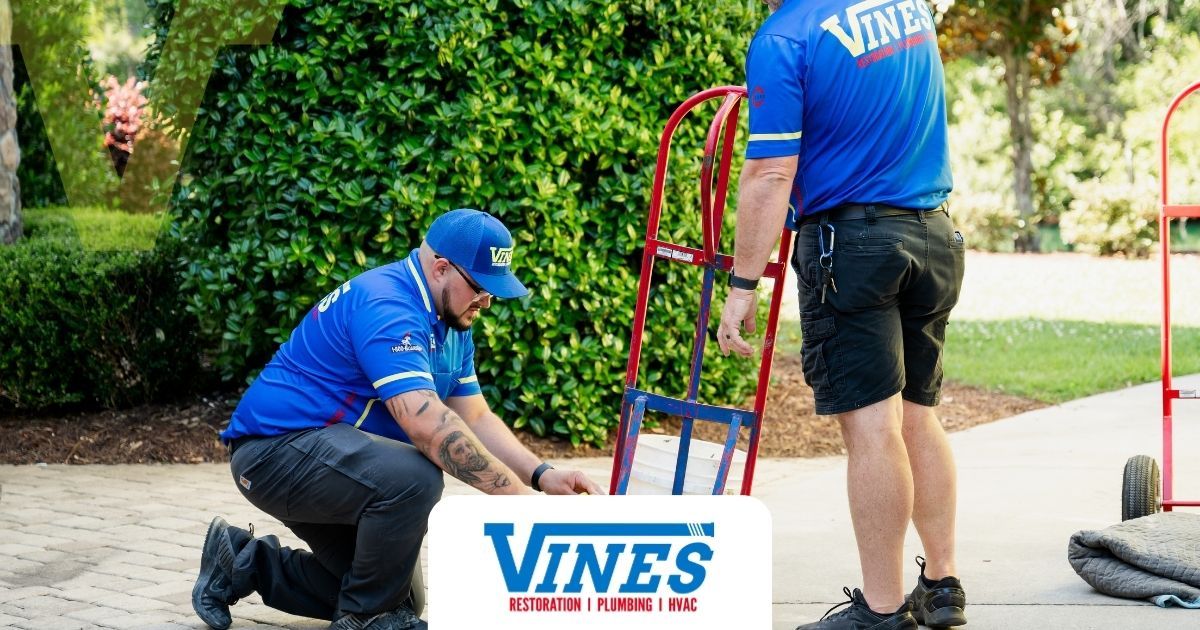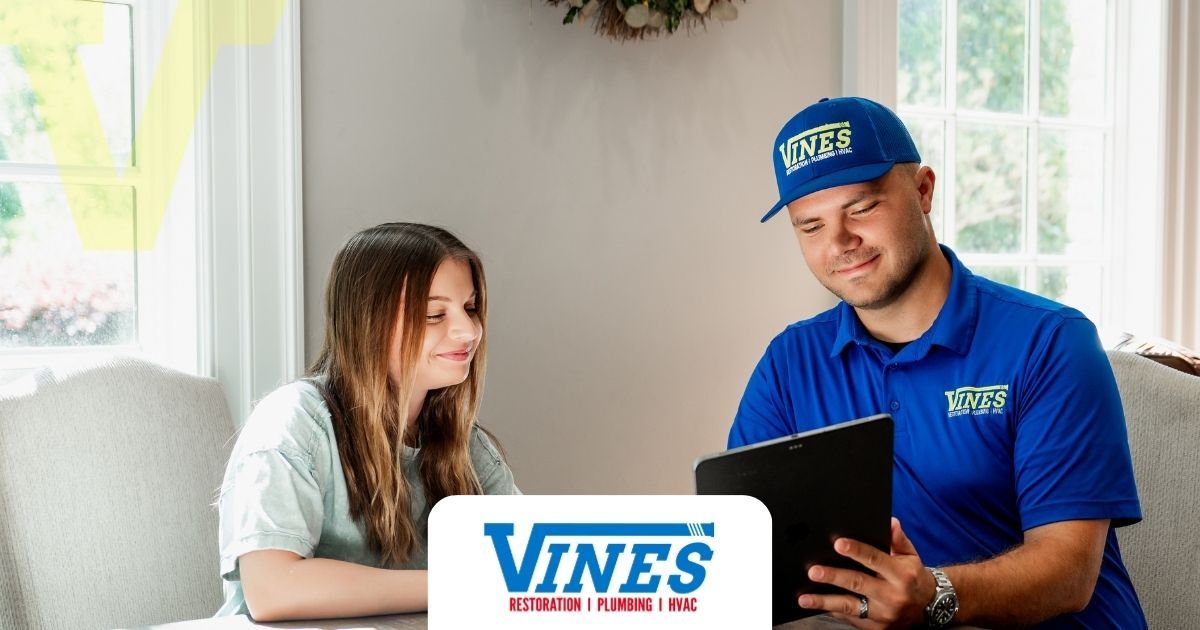My AC Is Blowing Warm Air: Common Causes and Quick AC Repair Solutions
When you turn on your air conditioner, the last thing you want is warm air blowing out of the vents. Unfortunately, this is one of the most common issues homeowners face, especially during the sweltering summer months. If you’ve found yourself asking, “Why is my AC blowing warm air?” you’re not alone. At Vines, we hear this concern often, and we know exactly how to diagnose and fix the problem—fast.
Below, we share the most common reasons your air conditioning system might be blowing warm air and explain how our expert team at Vines delivers quick, reliable AC repair to get your Myrtle Beach, SC, home cool and comfortable again.
1. Incorrect Thermostat Settings
Believe it or not, the first place to check is your thermostat. If your AC system is blowing warm air, your system might not actually be set to “cool.” It’s a simple fix, but one that’s often overlooked.
Thermostat Troubleshooting
Double-check that your thermostat is set to “cool,” not “heat” or “fan.” Also, make sure the temperature is set lower than the current room temperature. If your thermostat seems unresponsive, change the batteries. If the thermostat is hardwired, the issue may be electrical or related to the wiring, in which case you should call for air conditioner repair in Myrtle Beach, SC.
2. Dirty Air Filter
A clogged air filter restricts airflow and can cause your HVAC system to overheat. When the airflow is blocked, your air conditioning system struggles to distribute cool air and may begin blowing warm air instead.
What to Do
Inspect the air filter and replace it if it’s dirty or clogged. For best performance, check your air filter every 1–3 months. If the issue persists after replacing the filter, it’s time to search for AC repair near me and bring in Vines for a deeper inspection.
3. Low Refrigerant Levels
Refrigerant is used by your cooling system to transfer heat outdoors, which cools your Myrtle Beach home. When levels are low—usually due to a leak—your air conditioner can’t absorb heat effectively. This results in warm air blowing from your vents.
Schedule an AC Repair Service Call
This issue requires professional air conditioner repair. Vines technicians will locate the leak, seal it, and recharge the system with the correct amount of refrigerant. We don’t just patch the issue—we make sure your system is sealed and fully operational before we leave.
4. Dirty or Frozen Evaporator Coils
If your evaporator coils are covered in dust or ice, they won’t be able to absorb heat from the air. Dirty coils can lead to frozen components, which completely block the cooling process.
Next Steps
Turn off your AC unit and let the coils thaw completely. Then, call Vines for professional coil cleaning and assessment. Our air conditioning repair services include a full system check to prevent this from happening again.
5. Condenser Unit Issues
Your outdoor condenser unit releases heat removed from inside your home. If the unit is dirty, obstructed by debris, or has a failing fan, it won’t be able to do its job effectively, resulting in warm air inside.
Clean the Condenser Unit
Clear away any debris, grass, or leaves around the unit. If the problem continues, a technician from Vines can perform a thorough cleaning and check the electrical components. When locals look up “AC repair near me,” they trust our experienced Myrtle Beach heating and cooling technicians for air conditioning services that restore outdoor units to full working order.
6. Electrical Problems
Sometimes the issue is not mechanical but electrical. A tripped breaker or faulty wiring can prevent your system from cooling properly.
Troubleshooting Steps
Check the air conditioning unit’s breaker in your home’s electrical panel, and reset it if it is in the OFF position or stuck in the middle. Wait a few minutes and see if your AC kicks back on and starts blowing cool air. If the breaker trips repeatedly after you reset it, do not keep flipping it back on. Continuous tripping is a sign of a deeper issue. For your safety, turn off the breaker and contact Vines to have your air conditioner serviced.
7. Leaky or Disconnected Ductwork
If your ductwork has leaks or disconnects, the cool air your air conditioning system produces may never reach your living spaces. Instead, it escapes into the attic or crawl spaces, and warm air is all that’s left to circulate.
Ductwork Solutions
Have your ducts inspected by Vines. We’ll assess the extent of the damage and seal the affected sections. With proper duct sealing, your ductwork will efficiently deliver cool air where it’s needed most and improve indoor air quality by keeping contaminants out of your ducts.
8. Aging or Inefficient System
Sometimes the issue isn’t a specific component—it’s the age or overall condition of your air conditioning unit. Older systems lose energy efficiency and may struggle to produce cold air even when every part is functioning.
Replacement Options
If your HVAC system is more than 10–15 years old, it may be time to consider replacement. Vines offers free consultations to help you decide whether air conditioner repair or a new air conditioning or heat pump installation is more cost-effective.
How Vines Delivers Fast and Reliable AC Repair
If you’ve gone through the basic troubleshooting steps and your system is still blowing warm air, it’s time to contact a professional. Delaying the repair can lead to more serious damage and higher energy bills.
When you choose Vines for air conditioning repair in Myrtle Beach, SC, you can expect fast response times, accurate diagnostics, and lasting solutions.
- Fast AC Repair Appointments: We know time is critical. When you contact us for AC repair near me, we respond quickly and prioritize your comfort. Emergency AC service is also available 24/7.
- Upfront Pricing: No surprises from our Myrtle Beach cooling company! We’ll explain the problem and your options before any work begins.
- Certified Technicians: Our team is trained, experienced, and equipped with the tools to handle every kind of air conditioner repair, from refrigerant leaks to coil replacements.
- Preventative Maintenance Options: After solving the issue, we’ll offer practical tips and discuss regular maintenance to keep your system running efficiently.
Stay Cool in Myrtle Beach, SC With Vines
Searching for “AC repair near me” doesn’t have to be a gamble. Vines has built a reputation for reliable, honest, and affordable AC repair services, from North Myrtle Beach, SC, to Garden City. Whether you need a minor fix or a full system upgrade, we’ve got you covered with the right HVAC services.
A warm blast from your AC unit can feel like a major emergency in the middle of summer—but with Vines on your side, you’ll never be left in the heat for long. From simple thermostat fixes to complex air conditioner repair, our cooling services team is here to help you stay cool, comfortable, and worry-free.
Don’t suffer through another hot day. Schedule service with Vines now for expert AC repair and experience the comfort of a Myrtle Beach home that’s truly climate-controlled.
